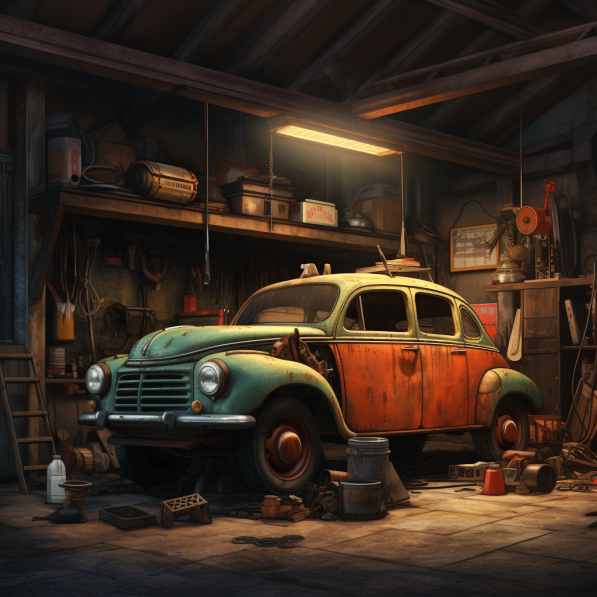car tune-up checklist
Maintaining your vehicle is crucial for ensuring its longevity, safety, and efficiency. Regular tune-ups can prevent unexpected breakdowns, enhance performance, and even save you money on fuel and costly repairs.
This Car Tune-Up Checklist is designed to guide you through the essential checks and maintenance tasks that should be performed on your vehicle. Whether you’re a seasoned car enthusiast or a new car owner, this checklist will help you keep your vehicle in top condition. From engine oil checks to tire inspections, each item on this list plays a vital role in your car’s overall health. Remember, a well-maintained car is a reliable companion on the road. Let’s ensure your vehicle gets the care it deserves!
Car Tune-Up Checklist
Engine Oil Check
Air Filter Inspection
Spark Plugs
Fluid Levels
Battery Performance
Belts and Hoses
Tire Inspection
Brake System
Exhaust System
Lights and Signals
Windshield Wipers
Suspension System
Alignment Check
Cabin Air Filter
Fuel System

Car Tune-Up Checklist: Essential Tips and Advice for Optimal Vehicle Performance
Maintaining your vehicle is not just about keeping it running; it’s about ensuring safety, efficiency, and longevity. A regular car tune-up is a proactive way to avoid unexpected breakdowns and costly repairs. This blog post will delve into the importance of a Car Tune-Up Checklist, offering tips, advice, and a helpful FAQ section to guide you through the process.
Why a Car Tune-Up Checklist is Crucial
Your car is a complex machine with numerous parts working in tandem. Over time, these parts can wear out or malfunction. Regular tune-ups help identify potential issues before they become major problems, ensuring your car remains reliable and performs at its best.
Key Components of a Car Tune-Up
- Engine Oil Check: Regularly checking and changing your engine oil is vital. Old or low oil levels can lead to engine damage.
- Air Filter Inspection: A clean air filter improves engine efficiency and longevity.
- Spark Plugs: Worn-out spark plugs can decrease fuel efficiency and engine performance.
- Fluid Levels: This includes brake fluid, power steering fluid, transmission fluid, coolant, and windshield washer fluid.
- Battery Performance: A weak battery can leave you stranded. Regular checks are essential.
- Belts and Hoses: These are critical for various functions and should be free of cracks or wear.
- Tire Inspection: Properly inflated tires with good tread are crucial for safety and fuel efficiency.
- Brake System: Regular checks can prevent accidents and ensure your safety.
- Lights and Signals: Ensure all lights and signals are functioning correctly for safe driving.
Tips and Advice
- Regular Schedule: Follow your manufacturer’s recommended tune-up schedule. Typically, a tune-up is advised every 30,000 miles or two years, whichever comes first.
- Professional Help: While some tasks can be DIY, don’t hesitate to seek professional help for complex issues.
- Quality Parts: Use high-quality replacement parts for longevity and better performance.
- Record Keeping: Keep a log of all maintenance and tune-ups for future reference and resale value.
FAQs
Q: How often should I tune up my car? A: It depends on your vehicle’s make and model. Check your owner’s manual for specific recommendations.
Q: Can I perform a tune-up myself? A: Yes, basic tasks like changing oil or air filters can be done at home. However, some tasks might require professional skills and tools.
Q: Does a tune-up improve fuel efficiency? A: Yes, regular tune-ups can improve fuel efficiency by ensuring that your car’s engine runs smoothly.
Q: What are the signs that my car needs a tune-up? A: Common signs include decreased fuel efficiency, unusual noises, stalling, or difficulty starting.
Q: Is a tune-up different for electric or hybrid vehicles? A: Yes, electric and hybrid vehicles have different maintenance needs. Consult your vehicle’s manual or a professional for specific advice.
Conclusion
A well-maintained vehicle is more reliable, safer, and more enjoyable to drive. By following a comprehensive Car Tune-Up Checklist, you can ensure your vehicle remains in top condition, saving you time and money in the long run. Remember, regular maintenance is the key to a long-lasting vehicle.






